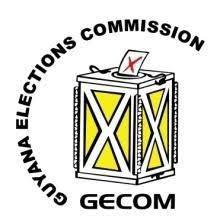President Irfaan Ali has vowed that there will be a revamped electoral machinery so that there is never a repeat of the long delays for elections results or blatant attempts to rig, experiences that he says he shudders to remember.
“We have to do and will do everything that must be done to safeguard this democracy, to have the reforms necessary in our electoral system, in our constitution, so that the generation to come won’t have [to] experience what we did and we won’t have to relive a moment like this,” Ali told Stabroek News in a Zoom interview on Tuesday as he recalled living through the elections ordeal from March 2 to August 2, when he was finally sworn in.
Asked to recall the events of March 5 when District 4 Returning Officer Clairmont Mingo first attempted to deliver fictitious declarations for his region, the first in a number of blatant attempts to rig the elections in favour of APNU+AFC, Ali said that it took a while for him to get over his initial shock.
“I was hit with a moment of sadness. Saddened to see, in front of our faces, in front of the international community, we had a group of people who were willing to destroy everything we stand for. They were willing to do everything possible to undermine democracy and the will of the people,” he said.
“But that sadness immediately transferred itself to a resolute commitment that we are not going to allow it to happen, we are not going to allow the people to be trampled upon. And when Mr Mingo made those false declarations, while I stood in astonishment, I silently recommitted myself that the will of the people and democracy is protected and that is where I think the leaders of the PPP, the regional leaders, and the world played an important role,” he added.
While not detailing what reforms he has planned and echoing pledges from his inauguration speech where he promised to see through constitutional and other reforms, the President said that he will put measures in place to ensure that by 2024, systems are in place to allow for a transparent and democratic process with swift and accurate results and declarations.
“This has also strengthened me as an individual in my own commitment in safeguarding and protecting freedom, democracy, the rule of law, and the respect for people, because never again, must this happen, never again must our credibility be shattered in this way, in the eyes of the world. We all must commit ourselves to ensure this never happens again,” he stressed.
He said that on March 5 he was overcome with emotion when a veteran politician cried at the GECOM office on hearing Mingo’s false declarations being read out from a spreadsheet atop the stairs of the Ashmins Building. He said the 70-year-old politician, who endured the hardships and lived under the PNC’s Forbes Burnham rule, plagued with more than two decades of elections rigging, sat with “tears coming from his eyes”. Trying to comfort the man, Ali said he told him he understood how he felt because he felt the same way. “He said to me ‘no you cannot’. I asked him why he said that and he said, ‘I lived through this and I thought I would never see it again in my life. And yet here I am, at 70 years old, seeing it once again’,” Ali recalled.
“What I can tell you is I hope that the systems we will build will not allow him to be in that position at 74, if I am spared that length of life,” he added.
Soon after the official declaration of Ali as President, the Carter Center, which has been associated with electoral reforms here since 1990, said that the elections highlighted the “deep divides that persist in Guyanese society and the ways that the current political and electoral systems reinforce these divisions. It is critical that key leaders in Guyana now reach across the divide and work to ensure that fundamental electoral and constitutional reforms are completed as an urgent priority, well before the next election. Guyana’s political leaders spoke of these ideals during the campaign period, and the Center calls on them now to work together to realize them. An inclusive reform process – with civil society leaders playing a key role, and with strong support from the international community – will be essential.”
The Center urged the new PPP/C government to move quickly to begin this process and said it stands ready to assist in these efforts and advance Guyana’s vast potential.
The European Union (EU) also pledged its support for electoral reforms here.
On August 8th it noted the recommendations presented in the final report of the European Union Election Observation Mission (EU EOM) that was here and said that the EU stands ready to support this reform process in cooperation with the Guyana Elections Commission (GECOM) and other electoral stakeholders.
“The EU has been a staunch supporter of democracy and rule of law throughout the entire process. We look forward to working together to further develop our strong partnership based on our human, cultural and historical links,” it added. In its final report on the elections, the EU EOM said that with confidence in GECOM already undermined by limited inclusiveness and transparency, post-election developments “exposed a dysfunctional commission unable to control its own secretariat.” It also highlighted major issues regarding the composition of GECOM. As a result, it recommended a national consultation process to overhaul the composition and functioning of GECOM, notably to ensure a more inclusive representation of the various components of the Guyanese society and political spectrum.






